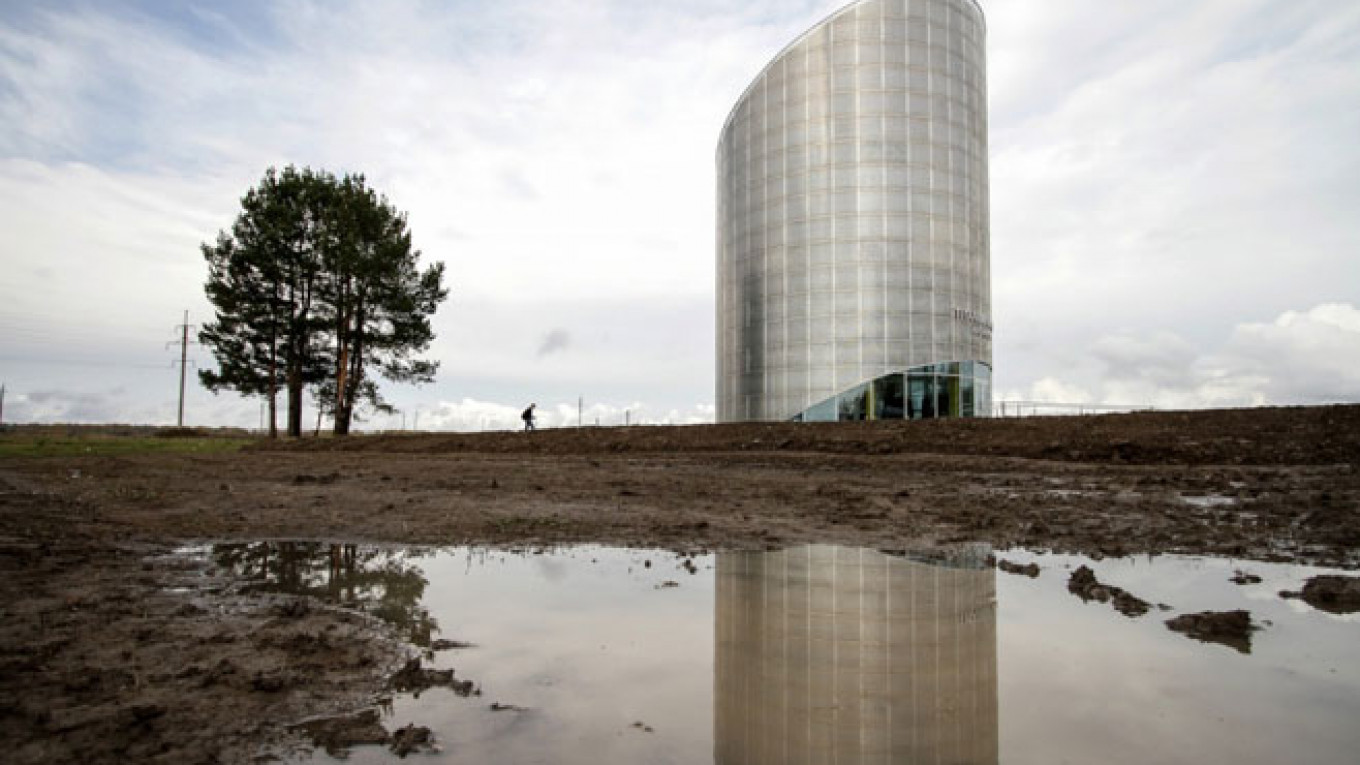The country’s ongoing standoff with the West over Ukraine appeared to raise few jitters among the attendants of a Tuesday meeting where the government attempted to attract more foreign investment to a special economic zone.
Although major Western powers are loudly threatening economic sanctions, about 20 people gathered for a business breakfast organized by the American Chamber of Commerce in Russia, or AmCham, appeared incredulous that such restrictions would affect their future activities.
A question about the prospects of the Titanium Valley economic zone in light of the Ukraine crisis came from AmCham president Alex Rodzianko after the zone's director Artemy Kyzlasov touted all the perks he was able to offer investors.
"I hope that common sense will prevail, better sooner than later," Kyzlasov said. "We would not like any unfriendly steps from either side because there is a process of integration between Russian and American economies going on.
"I do not see any consequences at the moment. Our partners are not saying they want to suspend relations," he added.
Titanium Valley's U.S. partners include Boeing and industrial gases producer Praxair. It is hoping to strike a deal with another U.S. company, Alcoa, and Japan's Mitsubishi in the near future, Kyzlasov said.
Olga Drabkina, marketing director for Russia at AECOM, which builds industrial premises for investors, said she came to the meeting to assess opportunities at the zone located in the Sverdlovsk region in the Urals. She expressed doubt that any Western retaliation for Russia's purported interference in the Ukrainian peninsula of Crimea would hurt investment.
"I do not think it will have any effect, perhaps just for a short time," she said. "Russia is a very high-potential market."
The troops that have overrun the Crimea wear no insignia but are widely believed to be Russian.
The steep decline of the ruble's exchange rate is a greater threat for the company's business than any possible backlash from the West, said Raymond Abu Fadel, AECOM's director for the region that includes Russia. Customers will have less hard currency-denominated funds to buy foreign equipment, and therefore downsize any expansion plans, he said.
Russia largely relies on imported high-tech equipment for its industrial development.
The sentiment at the AmCham meeting reflects a wider attitude to the Ukraine crisis from the foreign business community.
Volvo is continuing to build a plant to produce cabins in Kaluga for the trucks it is assembling in Russia, said Peter Anderson, chief of Volvo Group Trucks in Russia, at a news conference Tuesday.
IKEA on Monday announced it would carry on investing in new and existing furniture stores in Russia.
Titanium Valley is of one of Russia's six free economic zones for industrial manufacturers.
Contact the author at medetsky@imedia.ru
A Message from The Moscow Times:
Dear readers,
We are facing unprecedented challenges. Russia's Prosecutor General's Office has designated The Moscow Times as an "undesirable" organization, criminalizing our work and putting our staff at risk of prosecution. This follows our earlier unjust labeling as a "foreign agent."
These actions are direct attempts to silence independent journalism in Russia. The authorities claim our work "discredits the decisions of the Russian leadership." We see things differently: we strive to provide accurate, unbiased reporting on Russia.
We, the journalists of The Moscow Times, refuse to be silenced. But to continue our work, we need your help.
Your support, no matter how small, makes a world of difference. If you can, please support us monthly starting from just $2. It's quick to set up, and every contribution makes a significant impact.
By supporting The Moscow Times, you're defending open, independent journalism in the face of repression. Thank you for standing with us.
Remind me later.






